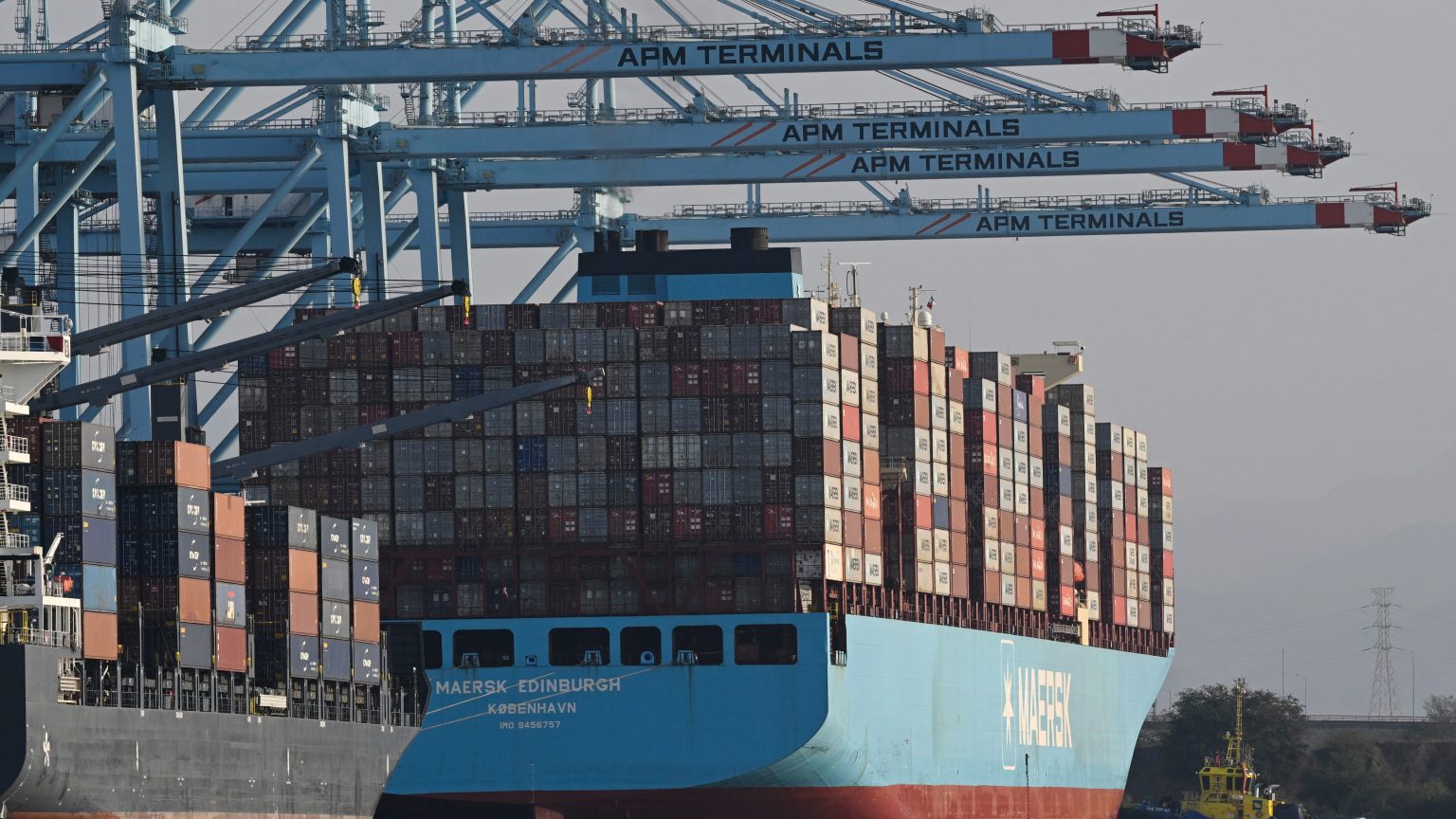The global shipping landscape is poised for a potential shift as Maersk, one of the world’s leading container shipping companies, signals its intention to resume operations through the Red Sea and Suez Canal. This decision, announced by CEO Vincent Clerc on Tuesday, hinges on improved security conditions following a recent ceasefire and comes after months of disruption caused by attacks from Yemen’s Houthi rebels. The future of Red Sea shipping remains uncertain, but Maersk’s statement offers a glimmer of hope for a return to normalcy in this vital trade route.
Maersk Eyes Red Sea Return Amidst Calmer Waters
Vincent Clerc’s announcement, made during a joint press conference with the head of the Suez Canal Authority in Egypt, indicated a positive outlook influenced by the ceasefire agreement between Israel and Hamas last month. This pause in hostilities is expected to ease tensions in the Bab al-Mandab Strait, a crucial waterway connecting the Red Sea to the Gulf of Aden, allowing for safer passage.
Clerc emphasized that the resumption of transit through the Red Sea will be contingent on maintaining the safety of Maersk’s crew. He stated they would move “as soon as conditions allow,” but provided no firm date. A spokesperson for the Danish company confirmed this, reiterating the priority is crew safety.
However, a minor discrepancy arose regarding the timeframe. The Suez Canal Authority previously announced a partial resumption of transit through the canal in December, a statement Maersk has refuted. This highlights the ongoing volatility and the need for careful assessment of the situation on the ground.
Impact of Houthi Attacks and the Gaza Conflict
The recent instability in the Red Sea stems from a series of attacks launched by the Houthi movement in Yemen against vessels. These attacks, beginning in late 2023, were declared in solidarity with Palestinians in Gaza amidst Israel’s ongoing military operations. Over 100 attacks have been reported on ships traversing the Red Sea, Gulf of Aden, and Bab al-Mandab Strait, forcing many shipping companies, including Maersk, to reroute their vessels around the southern tip of Africa – a significantly longer and more expensive journey.
The diversion of traffic has had a substantial economic impact, particularly on Egypt. Estimates suggest the Suez Canal Authority has lost approximately $7 billion in revenue due to the decreased volume of ships passing through the waterway. This disruption has also contributed to increased freight rates and potential delays in global supply chains. The situation underscores the vulnerability of critical trade routes to geopolitical instability.
Maersk Under Pressure: Divestment and Military Equipment Concerns
Beyond the operational challenges posed by the Houthi attacks, Maersk has faced intense scrutiny and pressure from pro-Palestine activists. In June, the company announced its divestment from companies linked to illegal Israeli settlements in the occupied West Bank, a move directly responding to months of sustained campaigning.
This decision aligned with guidelines set by the United Nations High Commissioner for Human Rights (OHCHR), which maintains a database of businesses operating in these settlements, deemed illegal under international law. The OHCHR database, first released in 2020 and updated in 2023, lists over 100 companies involved in activities that contribute to human rights abuses against Palestinians.
However, activists argue that Maersk’s actions don’t go far enough. They continue to call for a complete halt to the transportation of military equipment to Israel, specifically components for the F-35 fighter planes used in the conflict in Gaza. They accuse Maersk of playing a crucial role in supporting the Israeli army during the war.
Protests and Maersk’s Response
The accusations have fueled protests globally, including demonstrations at Maersk’s headquarters in Copenhagen, as well as in New York and Morocco. Maersk has consistently maintained that it does not ship weapons or ammunition to Israel, with the exception of parts for the F-35s.
In July, the company issued a statement claiming it was being subjected to a smear campaign, alleging that activist groups were fabricating accusations to garner public attention. They defended their adherence to international regulations and expressed concern over the spread of “inaccurate allegations.” The debate surrounding Maersk’s involvement highlights the complex ethical considerations faced by multinational corporations operating in conflict zones. Supply chain ethics are becoming increasingly important to consumers and investors.
Looking Ahead: The Future of Trade Through the Red Sea
The potential resumption of Suez Canal transit by Maersk is a cautiously optimistic development. While the ceasefire provides a window of opportunity, the underlying geopolitical tensions remain. The Houthis have previously stated their willingness to continue targeting ships they believe are linked to Israel, and the situation could escalate rapidly.
The coming weeks will be critical in determining whether Maersk can safely and reliably resume operations through the Red Sea. Close monitoring of the security situation, ongoing dialogue with relevant authorities, and a continued commitment to crew safety will be paramount. The broader implications for global trade and the economic recovery of Egypt will depend on the long-term stability of this vital waterway. Global trade routes are constantly evolving, and this situation is a prime example of how quickly they can be disrupted.

